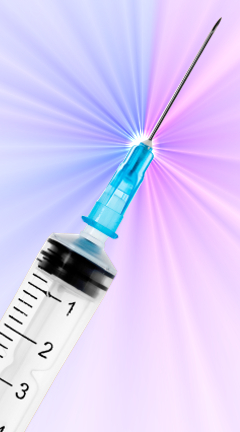Push for more baby jabs

Health experts say Australia should consider vaccinating babies for meningococcal B.
A multicomponent serogroup B meningococcus vaccine was licensed in Australia in 2014, and doctors and parents need up to date information about disease risk to assist them in making decisions about use of the vaccine, according to research published in the Medical Journal of Australia.
“Even with good access to medical care, invasive meningococcal disease (IMD) can rapidly progress to death,” wrote the authors, led by Professor Peter McIntyre, director of the National Centre for Immunisation Research and Surveillance at the Children’s Hospital, Westmead.
“About one in 10 survivors of meningococcal B (MenB) disease develop major disabling sequelae, and more than one third may have one or more physical, cognitive, psychological, memory, or executive function deficits, incurring both personal and societal costs. The likelihood of severe outcomes and the challenges of early diagnosis and treatment, combined with public fears about the disease, make prevention of IMD highly desirable.”
To assess trends by age for IMD, and any disparity in Aboriginal and Torres Strait Islander Australians compared with others, the researchers analysed de-identified notification data on IMD from the Australian National Notifiable Diseases Surveillance System during 1999–2015 to calculate rates by age, serogroup, and Indigenous status over this period.
The incidence of MenB disease declined progressively from 1.52 cases per 100 000 population in 2001 to 0.47 per 100 000 in 2015.
During 2006–2015, MenB accounted for 81 per cent of IMD cases with a known serogroup; its highest incidence was among infants under 12 months of age (11.1 per 100 000), children aged 1–4 years (2.82 per 100 000), and adolescents aged 15–19 years (2.40 per 100 000).
The incidence of MenB disease was significantly higher among Indigenous than non-Indigenous Australians during 2006–2015 (incidence rate ratio [IRR], 3.8; 95% CI, 3.3– 4.5).
Since August 2014, a multicomponent recombinant vaccine, designed to afford protection against a broad spectrum of MenB strains, has been available in Australia for vaccination from 2 months of age, but only on private prescription.
The Australian Technical Advisory Group on Immunisation has recommended targeted vaccination of age groups and populations at increased risk of invasive disease, but applications by industry to the Pharmaceutical Benefits Advisory Committee to include the vaccine in the National Immunisation Program have not met cost-effectiveness criteria, McIntyre and colleagues remarked.
The authors wrote that as the morbidity and mortality of MenB disease were greatest during infancy, particularly the first 8 months of life, vaccinating infants from 2 months of age was the strategy most likely to yield the greatest benefit.
“Experience in the UK with the effectiveness of 2 doses of Men B vaccine in the first year of life, if found to be similar to 3 doses, will improve cost-effectiveness,” the authors write.
“In the meantime, clinical advice on MenB vaccination at the individual level is needed, and our data will assist doctors, families and individuals balance the expected benefit afforded by infant vaccination against the likelihood of disease, the risks of potential reactions, and cost.”








 Print
Print